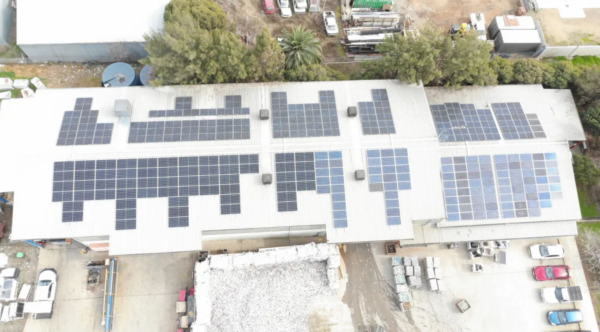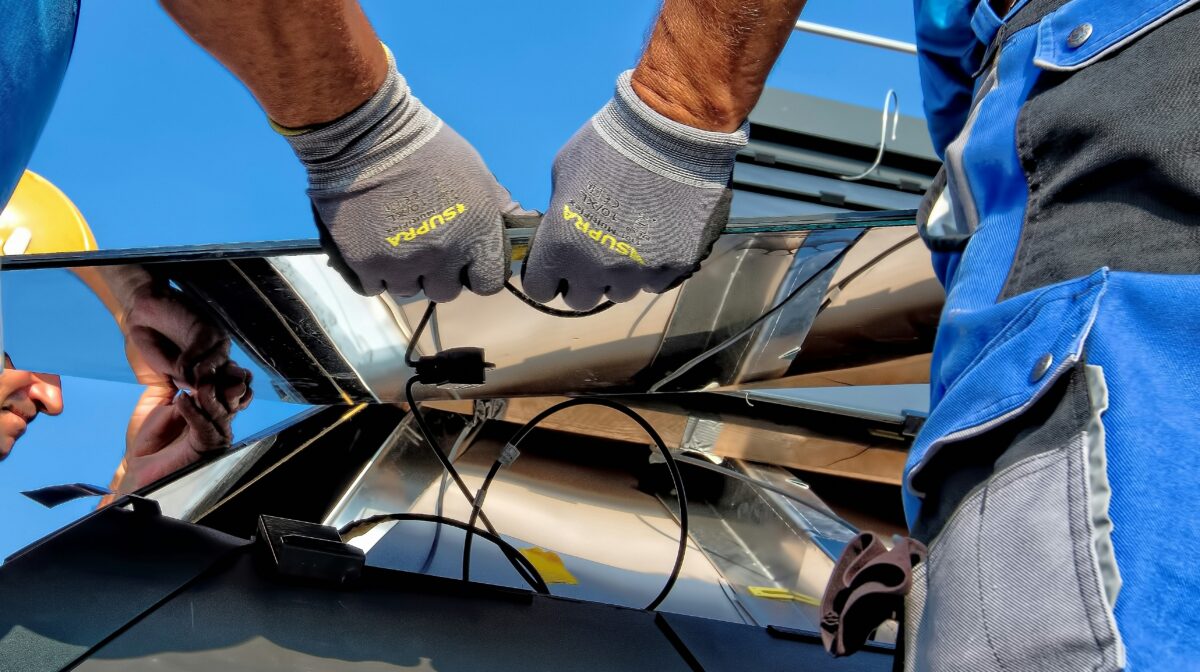Recipients of the New South Wales (NSW) Environment Protection Authority (EPA) Circular Solar Program (CSP) have progressed their individual projects to scale up solar panel recycling solutions and divert valuable material from landfill.
The Newcastle-headquartered Blue Tribe Company previously received $404,900 (USD 252,000) through the scheme for its Second Life Solar Stage 2 project, which has developed a new whole-of-supply chain business model and secondary marketplace to divert serviceable decommissioned solar panels from landfill for reuse, demonstrating the concept by installing a 100 kW rooftop solar system comprising 100% reused solar panels at the Kurrajong Recycling Facility in Wagga Wagga.

Image: Kurrajong Recycling Facility, Wagga Wagga/Blue Tribe Company
Locals were engaged in finding and testing the panels toward the goal of creating a commercial scale 100 kW ‘second life’ solar system.
The testing equipment was the result of a collaboration between Blue Tribe and the Commonwealth Scientific and Industrial Research Organisation (CSIRO) solar technologies team, who developed a mobile testing methodology (PV Rapid Triage Test Rig) to identify reusable panels.
Approximately four tonnes of decommissioned solar panels located in the project were tested with the method and 89% found to be fully functional.
The project has the potential to divert 10,000 tonnes per annum of reusable end-of-life solar panels by 2030.
Blue Tribe has also partnered with Queensland’s solar panel product stewardship trial, extending the reuse model to a new state.
Sydney-headquartered solar panel recycling solutions company PV Industries received $2.3 million through the NSW EPA CSP scheme, to support the establishment of a viable circular economy in NSW for solar panels, lithium-ion batteries and inverters.
Key achievements so far include constructing a high-capacity facility processing up to 300,000 panels annually, recovering 90% of materials using cutting-edge de-framing and de-glassing technology, expanding its logistic networks across metro and regional NSW for collecting solar panels, and testing end-markets for recovered solar panel glass in construction applications.
This content is protected by copyright and may not be reused. If you want to cooperate with us and would like to reuse some of our content, please contact: editors@pv-magazine.com.








By submitting this form you agree to pv magazine using your data for the purposes of publishing your comment.
Your personal data will only be disclosed or otherwise transmitted to third parties for the purposes of spam filtering or if this is necessary for technical maintenance of the website. Any other transfer to third parties will not take place unless this is justified on the basis of applicable data protection regulations or if pv magazine is legally obliged to do so.
You may revoke this consent at any time with effect for the future, in which case your personal data will be deleted immediately. Otherwise, your data will be deleted if pv magazine has processed your request or the purpose of data storage is fulfilled.
Further information on data privacy can be found in our Data Protection Policy.